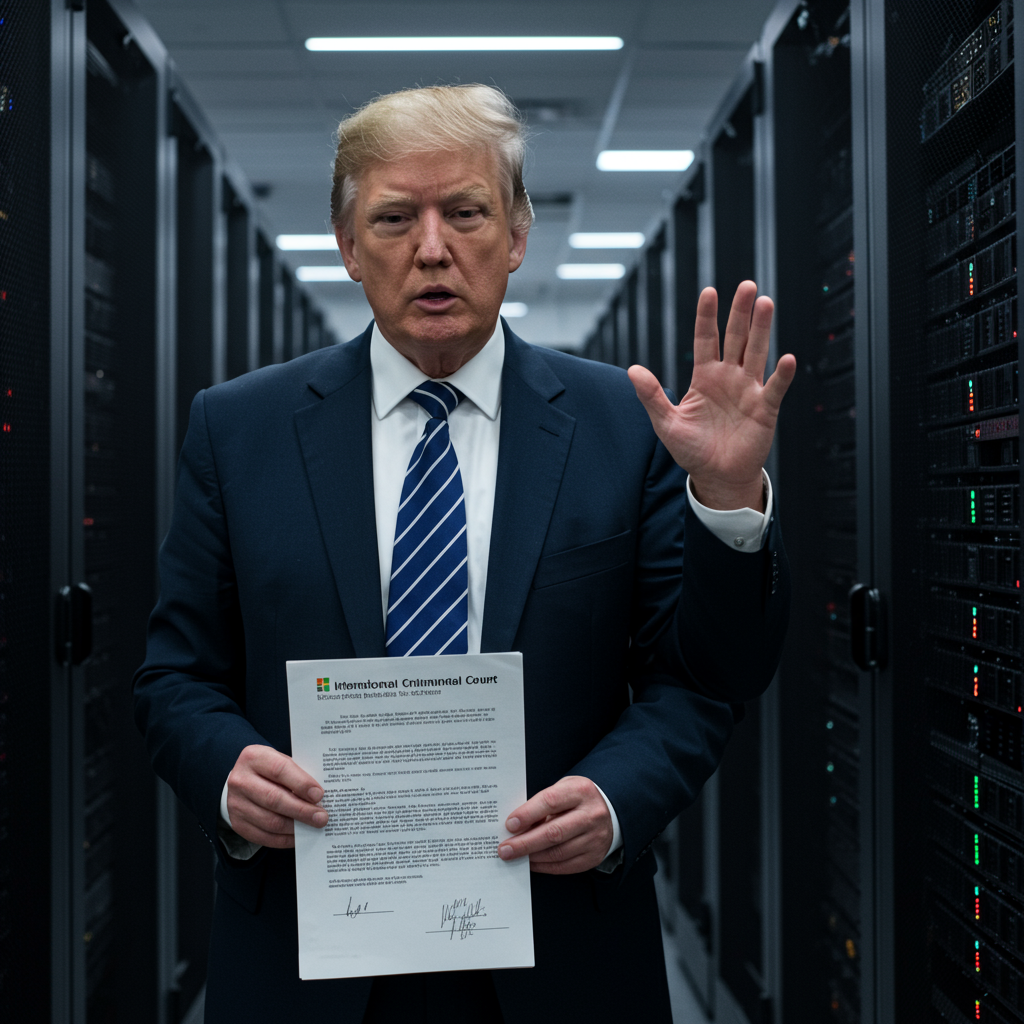A recent event involving Microsoft and an International Criminal Court (ICC) prosecutor has sent ripples of concern across Europe, starkly illustrating a growing fear: the potential for a future U.S. administration to leverage American technological dominance against its allies and perceived opponents.
The incident occurred when, in compliance with a Trump administration executive order targeting an ICC prosecutor investigating alleged war crimes by Israel, Microsoft suspended the prosecutor’s email account. This swift action by the U.S.-based tech giant, which had long provided digital services to the court in The Hague, effectively froze communications critical to ongoing investigations.
For many European policymakers, Microsoft’s compliance was a wake-up call. It demonstrated in practical terms how deeply embedded U.S. technology is in critical international institutions and how easily that dependence could be exploited for political ends by Washington.
The Broader Transatlantic ‘Collision Course’
Experts suggest this single event is a symptom of a much larger issue. As analyses indicate, a potential second Trump presidency could set the United States and Europe on a fundamental “collision course” across numerous policy areas – from NATO commitments and support for Ukraine to trade, climate, and crucially, technology policy.
Europe has historically relied heavily on the U.S., particularly for security. However, this dependence extends increasingly to the digital realm, where U.S. hyperscalers like Microsoft, Google Cloud, and Amazon Web Services dominate critical infrastructure like cloud computing and AI development.
This reliance creates a vulnerability. Some influential voices in the U.S. reportedly see Europe’s dependence, including its need for U.S. security guarantees, as potential leverage to pressure the European Union to ease regulations on American tech giants, such as competition rules under the Digital Markets Act (DMA).
Europe’s Push for Digital Sovereignty
However, Europe views the regulation of digital monopolies and the assertion of digital sovereignty not just as economic policy but as essential for protecting its democratic health, fostering its own innovation, and ensuring its strategic independence. Consequently, experts believe Europe is unlikely to back down on these regulatory fronts, even under political pressure.
This tension is fueling a tangible movement in Europe towards “de-risking” or “decoupling” from U.S. tech. Evidence includes:
Motions passed in national parliaments, like in the Netherlands, specifically asking governments to reduce dependence on U.S. tech services.
Open letters from organizations calling for greater European technological independence due to perceived security and reliability risks.
European-based cloud providers reporting increased inquiries and migrations from customers seeking alternatives to U.S. providers, often citing uncertainty related to U.S. political shifts.
Concerns over existing legal frameworks, such as the U.S. CLOUD Act which can allow U.S. authorities access to data stored outside the U.S., and the stability of transatlantic data-sharing agreements.
While the desire for technological independence is growing, the reality of migrating complex systems and vast amounts of data is challenging, time-consuming, and costly. European alternatives, while developing, often lack the scale and comprehensive offerings of the U.S. giants.
Navigating a Complex Future
The Microsoft-ICC incident serves as a stark reminder that Europe’s technological dependencies are not abstract concepts but have real-world geopolitical implications. As Europe contemplates a potentially more unpredictable transatlantic relationship, addressing its reliance on foreign technology, particularly in critical sectors like cloud infrastructure and data management, is becoming an urgent priority.
This effort is part of a broader strategy for Europe to enhance its resilience and strategic autonomy in a changing global landscape. While achieving full “digital sovereignty” is a long-term goal fraught with practical difficulties, the growing apprehension about the potential weaponization of U.S. tech dominance is undeniably accelerating Europe’s resolve to build a more independent digital future. Navigating this collision course will require unity and strategic investment to transform political will into tangible technological capabilities.



